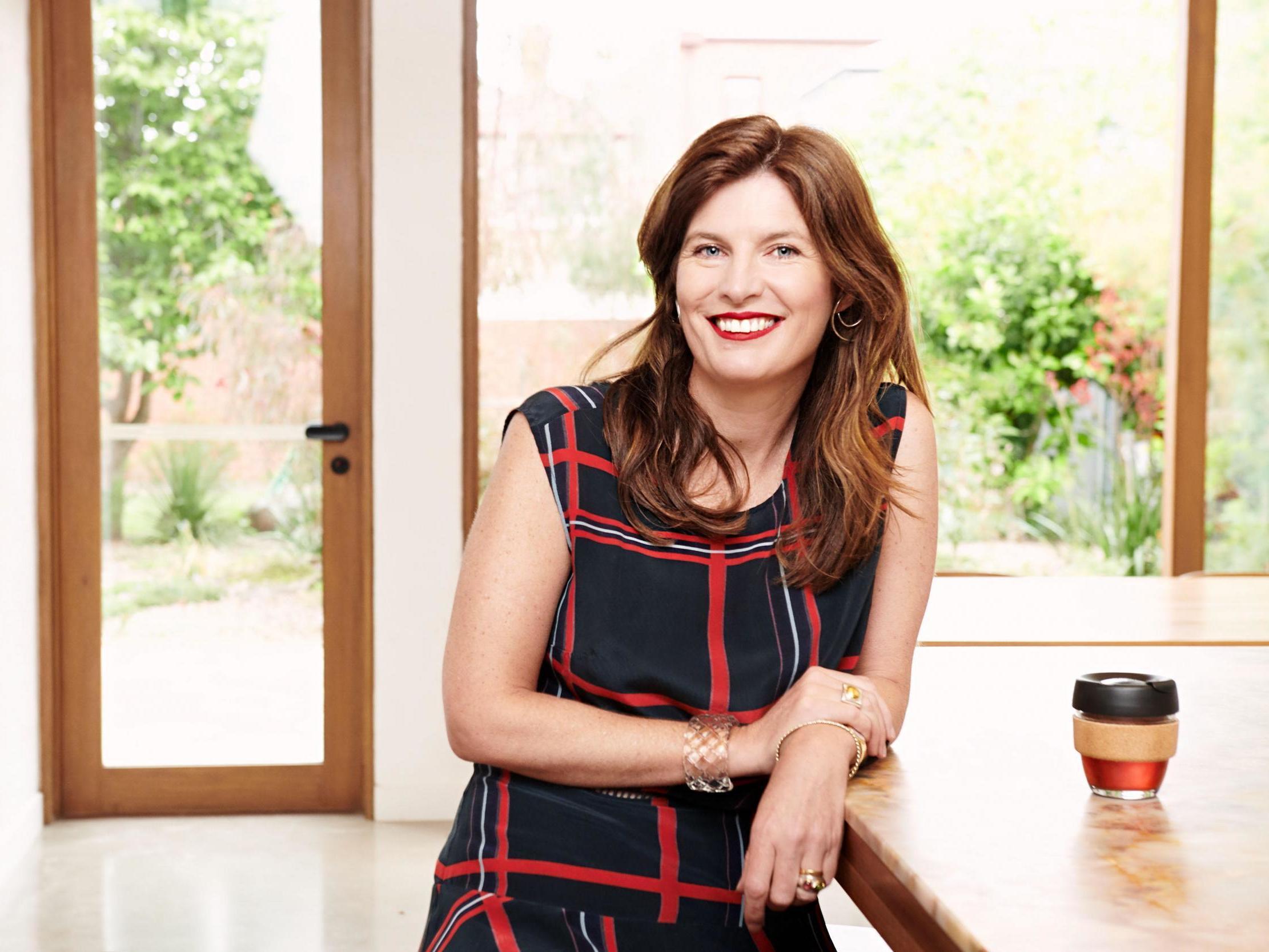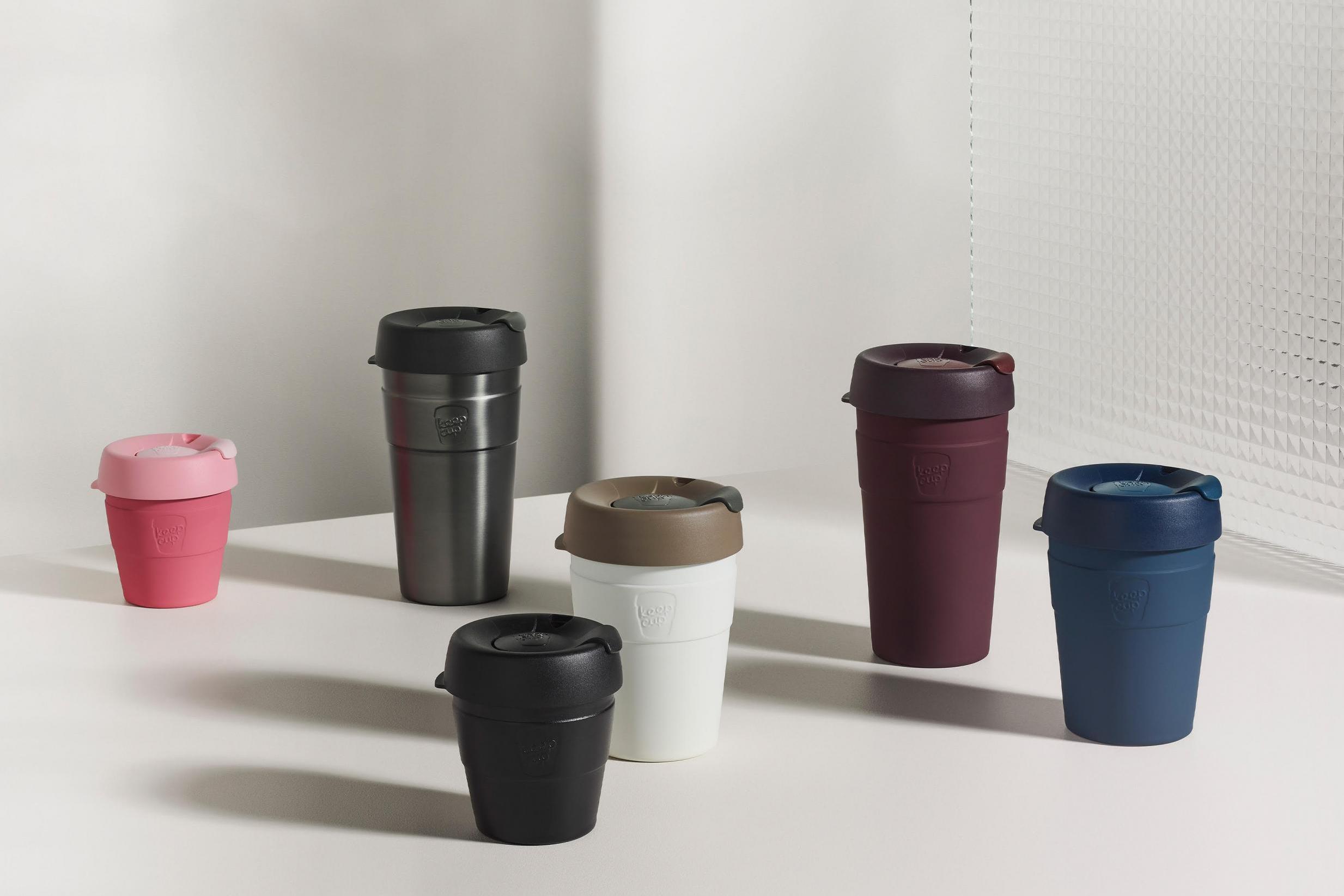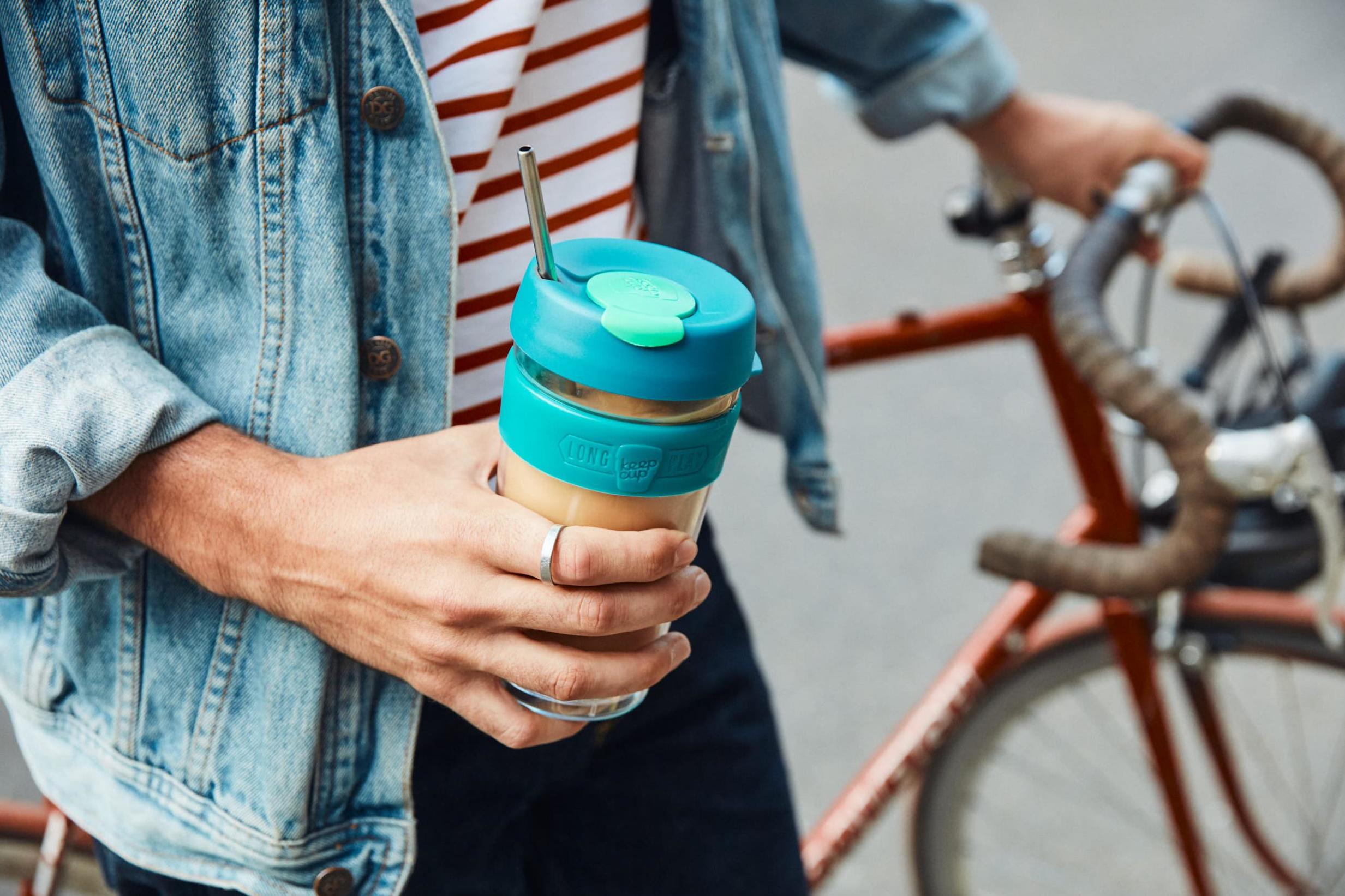‘If we’re going to survive, we must get rid of disposable cups’: How KeepCup turned a zero-waste solution into a fashion accessory
Zlata Rodionova discusses sustainability with co-founder Abigail Forsyth and why the paper coffee cup has ‘just got to go’


At least 2.5 billion coffee cups are thrown away each year with less than 1 per cent of those recycled, and that’s in the UK alone. But Abigail Forsyth, co-founder and managing director of KeepCup, hopes they will soon be a relic.
“I’d like to see the world disposable-cup free. If we’re going to survive as a species, we have to get rid of it, just like the plastic bag. We need to collectively realise that a disposable cup is actually something that you do not need. It’s just got to go,” Forsyth says.
KeepCup is widely regarded as the original and one of the best reusable coffee cup brands out there. It is now used in more than 65 countries and Forsyth estimates she sold more than 10 million cups to date, diverting potential billions of disposable cups from landfill across the globe.
She launched KeepCup with her brother Jamie in 2009 after they became concerned at the volume of disposable cups that were being thrown away after use at Bluebag, a small coffee chain they ran in Melbourne, Australia.
“We just couldn’t ignore the waste and all the packaging that resulted from our own business, we thought there must be a better way of doing this,” says Forsyth.
The coffee shop owners looked at models that were already available on the market but “none of them worked” in terms of volume and design, which prompted them to launch their own version.
It took about 18 months for the pair to actually launch the product using the cash flow from their coffee shop business and small loans from the bank.
While she was developing KeepCup, manufacturers described Forsyth’s product as “just a cup”, telling her that “if you can’t sell this off the prototype, then forget it, it will fail”.
“This turned out to be really good advice,” Forsyth says.
This prompted her to get in touch with all her catering clients, selling more than 10,000 KeepCups off a prototype even before the actual product was ready. “This gave us some cash but also confidence that we were on the right track.”

And the brand took off much faster than the pair expected. Ms Forsyth predicted KeepCup would sell 150,000 cups in a year but the firm ended up selling 300,000 in about a month.
“The support of the coffee community, having faith in myself and finding the right people to grow our business with was one of the keys of our success.”
In 2020, a reusable coffee cup is almost a fashion accessory and there’s a plethora of options on the market – from folding cups to travel cafetieres – to keep your coffee at your ideal drinking temperature. So what makes KeepCup different?
In 2020, a reusable coffee cup is almost a fashion accessory
“The sincerity of our mission or the ‘why’ of what we do is what makes us standout. Everything we do as a business from where we manufacture to what we do with our waste backs up our product,” Forsyth says.
Each KeepCup comprises four components available in a range of colours, allowing for around 50,000 different colour combinations, with consumers attracted by the fun colours and the customisation opportunities it offers.
For her corporate customers, KeepCup is also an easy way to keep their logo with the user for as long as possible, while proving their green credentials to customers and investors.
“KeepCup is still a very thought-through well-designed product. The reason why people carry our cups, it’s because they actually work very well.”

But Forsyth insists her desire to reduce waste is still what drives her, and she has built sustainability into her entire business.
There’s “no disposable anything” in KeepCup, according to the founder.
Start a business that is commercially successful while solving a problem and make it one that you’re passionate about solving
Laptops are not replaced until they don’t work, while employees are encouraged to cycle to work whenever possible. Waste is recycled and the company also uses green power, with master switches to completely turn off office power each night.
In 2019, the firm also became a member of 1 per cent For The Planet and committed to donating at least 1 per cent of their global revenue to environmental causes.
“Once you achieve a certain success, you have to be more cautious because you have something to lose.
“In an age where we can see that capitalism is not working, our challenge, as a business, is to show what a good company could look like in 2020 and how it can work.”
“We want to demonstrate that we can be commercially successful while holding true to our sustainability standards.”
As a founder of a wellness brand that is working towards encouraging people to live healthier and greener lives, Forsyth says yoga and outdoor activities with her children or pottering around the garden are her favourite things to do.
“We do our best to be a mindful family. My children are environmentally aware, we think about the way we travel and compost at home to reduce food waste.“
Her advice for entrepreneurs? Start a business that is commercially successful while solving a problem and make it one that you’re passionate about solving.
“As we’re a business with a purpose, a lot of people assume we are a non-profit organisation but you actually have to be commercially minded to sell a product and convince people to buy it, even for good reasons.
“And you’ll need that money because you will make mistakes and you can be beaten down to your knees each time it happens.”
Join our commenting forum
Join thought-provoking conversations, follow other Independent readers and see their replies
Comments